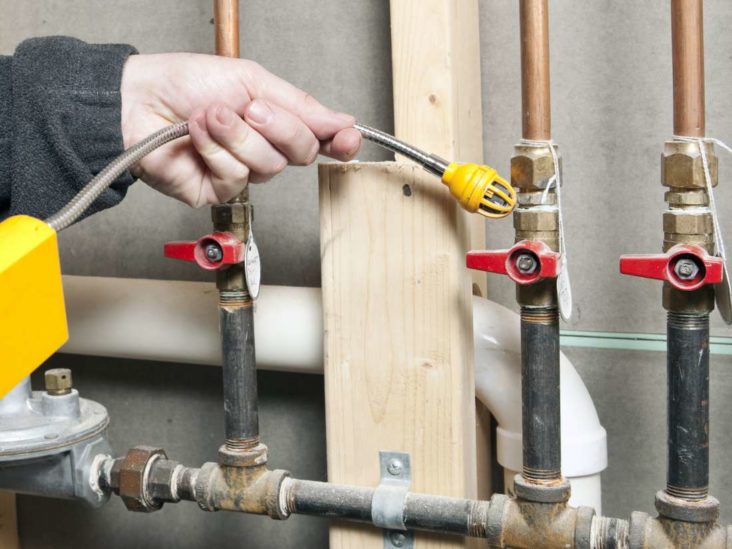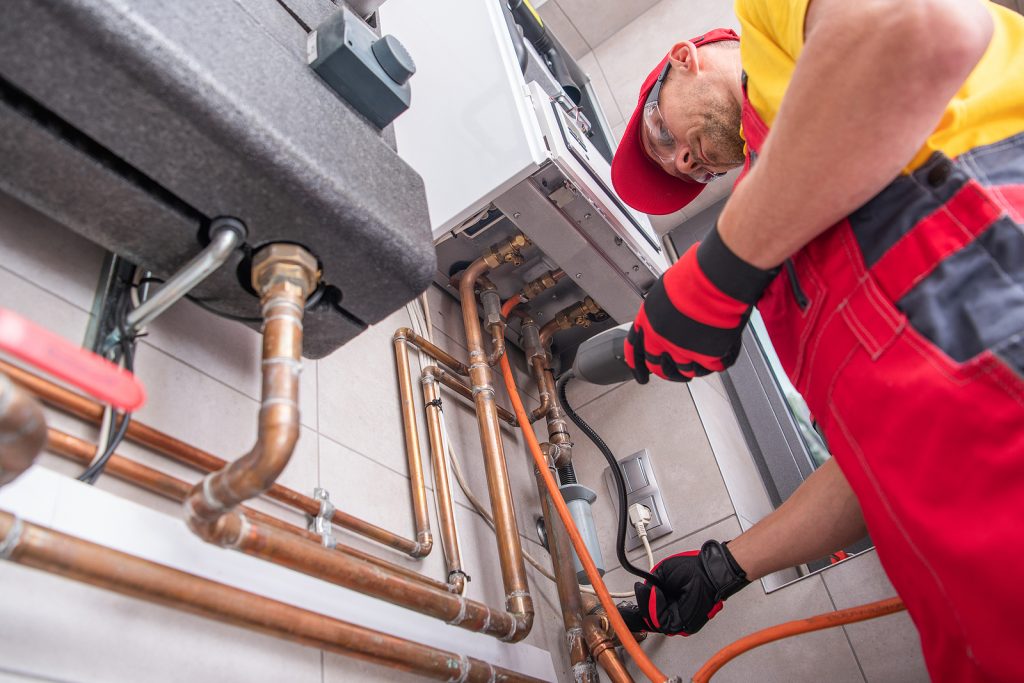You don’t need to call gas safety services in your local area to identify a gas leak in your home, though you can never be too careful. Identifying everyday warning signs of gas leaks can save you from catastrophic consequences on your health and your home, and without proper education, they can go unnoticed by members of your household for too long.
The United States loses 17 people per year on average due to gas leaks and explosions involving natural-gas pipelines, according to a study by ACS Publications. Though those numbers aren’t particularly jarring, considering even lightning strikes resulting in death are more common, often the leaks can be undetectable to humans without knowing what to look for.
This article will detail how to identify gas leaks, what warning signs to look for, and how to prevent future gas leaks in your home.
Are All Gas Leaks Dangerous?
Though most gas uses in a home are safe when in a controlled environment, leaks can cause fires, explosions, or natural gas poisoning in humans and pets. The smallest leak can lead to a fire or combust when met with flame or electricity. So as a general rule, yes, all gas leaks in the home can be dangerous.
According to the American Gas Association, over 73 million residential, commercial, and industrial premises in the United States use natural gas in activities like heating buildings and water, cooking, drying clothes, and other uses like gas fireplaces or electricity. If you think you’ve detected a gas leak in your home, vacate the premises immediately and call your local utility company.
IMPORTANT: If you detect or suspect a gas leak, it’s advised to never try to find or fix the leak. Don’t use the house phone to call for help. Don’t mess with appliances that use gas. Don’t use lighters or other sources of an open flame. Don’t ignore or brush off the situation.
What Are The Warning Signs Of A Gas Leak?
-
- Smell: Though small gas leaks may not produce an odor, the most common sign of a gas leak in a home is a smell of sulfur or rotten eggs or cabbage. If you detect a similar odor to these, it’s likely you have a decent gas leak. Vacate the home quickly and call for help.
- Hissing sound: A hissing or whistling sound near gas lines can indicate a gas leak in the home. Usually, this happens at a natural gas connecting point to your appliances. Both a smell and hissing sound could just be signs you left a burner on at the stove, but if that’s not the case, vacate the premises immediately.
- Bubbles in standing water: If you have bubbles in standing water or in wet areas, a gas leak could be the culprit. Try mixing soap and water and wiping down the suspected area; if there are bubbles, you likely have a gas leak.
- Dead plants in the home: If you are a religious plant caretaker, and you can’t explain why your plants are waning or dying, a gas leak could be responsible. Gas displaces oxygen that plants need to thrive, so if you have dead plants in or outside the house and can’t seem to explain it, it could be a leak.
- Mist or fog in the home: If you can’t reason why there would be mist or fog in your home, like from a humidifier or from cooking, gas could be present in the air. If it looks sketchy, play it safe and leave the house and call for help. If you have neighbors or live in a duplex or shared space, alert them of your findings.
- Your gas bills are higher than normal: If you can’t explain why your gas bills are elevated from previous months, especially if you aren’t using a lot of heat or cooking every day, a gas leak could be spiking the price, though generally other signs of a leak will be detectable prior to receiving a gas bill that looks funny.
- Damaged gas pipes: If your pipes look weird, something is likely wrong. Gas leaks can be responsible for the damage, and a damaged gas pipe can be an indication of a gas leak soon to come.

How Will A Gas Leak Affect My Health?
Though natural gas is non-toxic, prolonged exposure can lead to certain health issues and symptoms. This can happen over time as small gas leaks aren’t always detected early on. Gas leaks change the oxygen levels in the home, which could leave you feeling symptoms of:
- Dizziness or fatigue
- Headaches
- Breathing issues or short of breath
- Eye or throat irritation
- Reduced appetite
- Pale skin or blistering/rash
- Mood changes
- Lightheadedness
- Nosebleeds
- Nausea
- Other flu-like symptoms
- Feeling tired or drowsy
If you suddenly feel the onset of one or a combination of these symptoms, you could have a gas leak. Likewise, monitor your pets for symptoms as well, such as:
- Lethargy
- Difficulty breathing
- Vomiting
- Red or watery eyes
- Disorientation or changes in mood/behavior
- Loss of appetite
High levels of gas exposure, like overnight periods while sleeping, could lead to unconsciousness or even death.
Can I Prevent Gas Leaks?
Though not all gas leaks can be completely prevented, there are steps you can take to reduce the possibility of having one in your home. First, understand the warning signs of gas leaks and be attentive in your home about potential changes and symptoms.
Second, it’s recommended to schedule routine inspections from a certified gas inspector at least once a year. If you have a lease through an apartment building, make sure your pipes are inspected each time you renew your lease.
Third, make sure your home has proper ventilation. Make sure gas lines near appliances are unobstructed to reduce the potential for buildup.
Finally, install carbon monoxide detectors that alert you if your air quality becomes dangerous. Have a fire extinguisher on hand if possible to put out any potential gas fires that could occur, and make sure your chemicals, gas lines, connectors, and other volatile materials are stored away properly.






